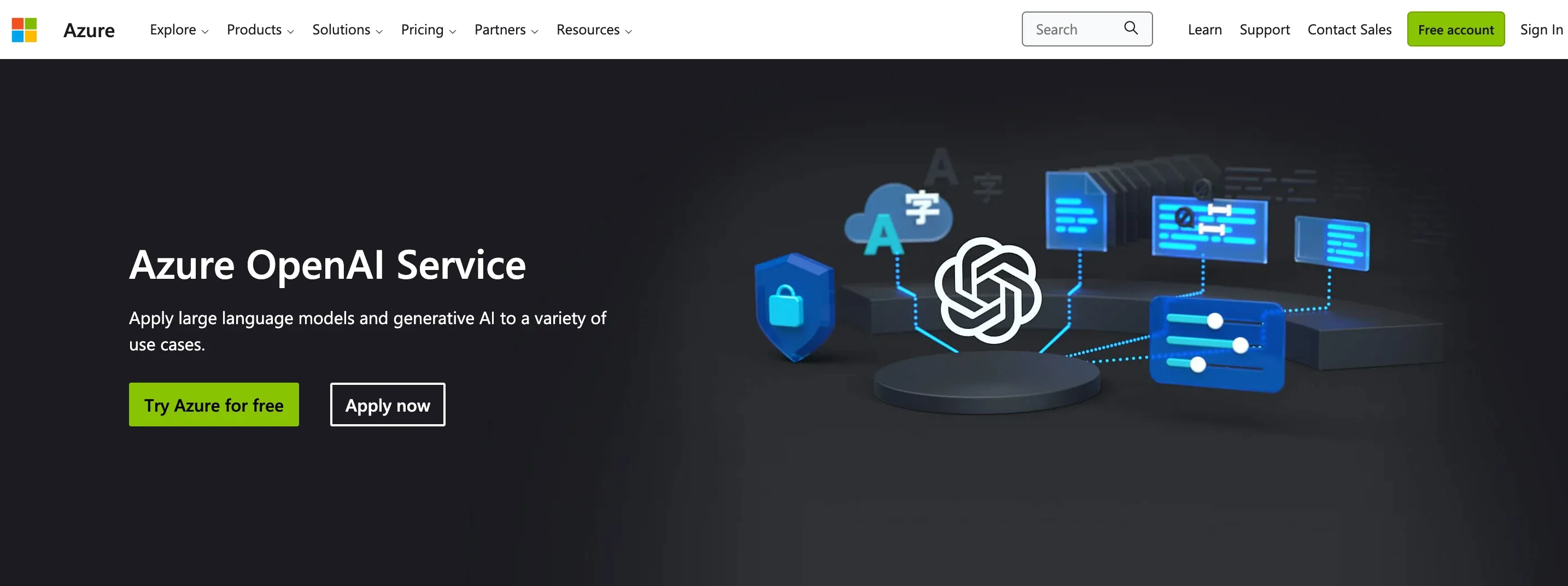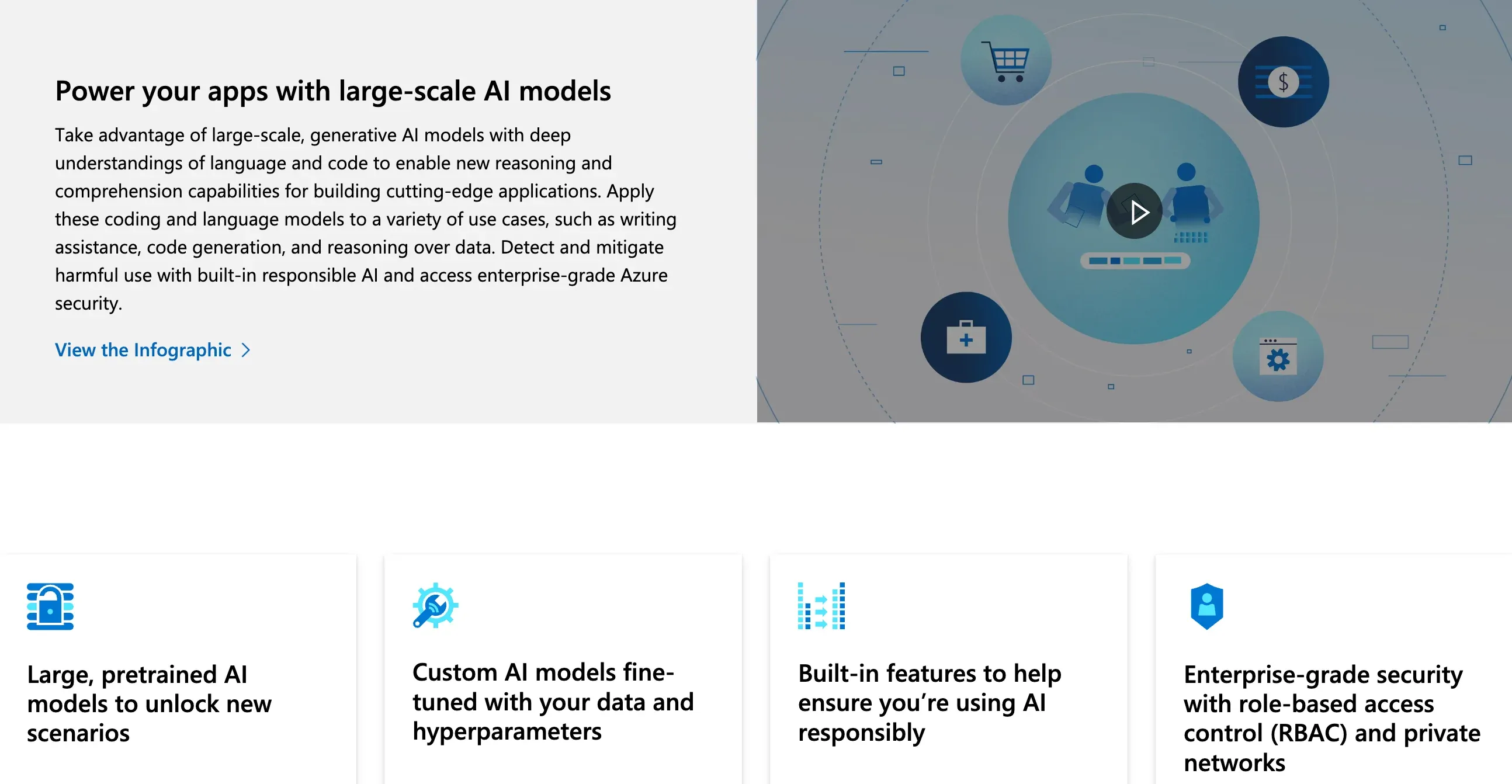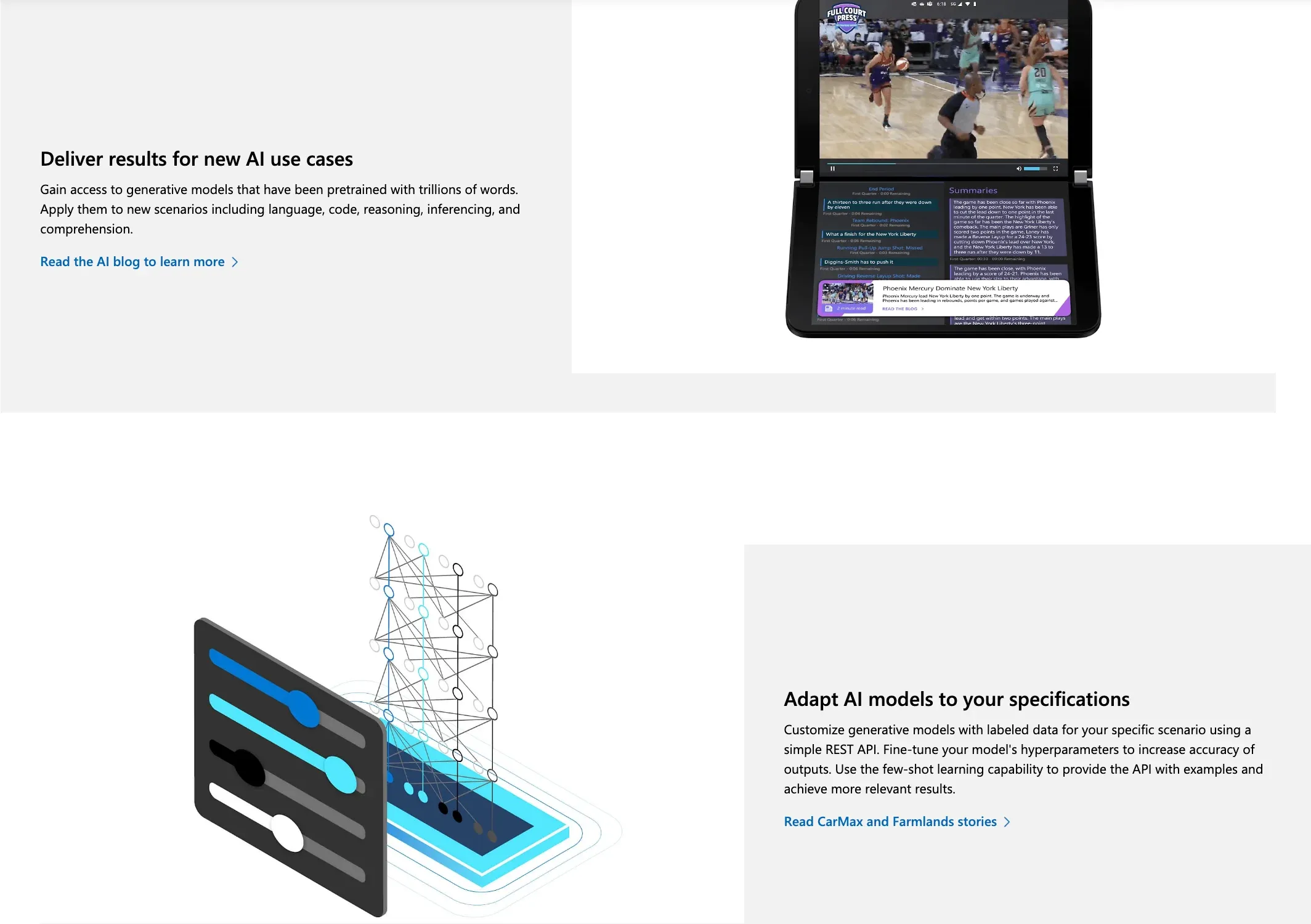Picture this. You're juggling a thousand tasks, from untangling perplexing codes to meeting tight deadlines, and in comes the all too familiar question - which cloud service provider fits your needs best? Azure? AWS? Google Cloud?
If this scenario hits too close to home, you are not alone! The cloud computing war keeps intensifying, with giants like Microsoft Azure, Amazon AWS, and Google Cloud throwing their hats in the ring. Making sense of this battle can feel daunting, especially when these platforms are ever-evolving.
With a bouquet of services at their disposal, each presents a strong case. But rather than get swayed by popular votes, wouldn't it be great to draw up our own battle lines? And that's precisely what we will do. We'll dissect crucial services, scale up to understand their flexibility, and measure their performance.
No more confusion, only crystal clear comparisons. Because, at the end of the day, the understanding of 'what is Microsoft Azure used for' should help you make an informed decision, rather than a popular one.
Azure PaaS: An Overview
Ever wondered about azure Microsoft and its platform-as-a-service option? Azure PaaS is the hero we're talking about. It's a cloud computing model, a segment of microsoft azure services, that allows companies to develop, run, and manage applications without struggling with infrastructure stuff. You just have to worry about your application; Azure PaaS handles everything else.
With Azure PaaS, businesses can gain the upper hand by leveraging microsoft azure features without bearing the load of handling, setting up, or managing an underlying infrastructure. It lifts the weight off developers' shoulders, letting them focus on their core objective: writing and maintaining code.
Now, let's talk about what is microsoft azure used for, especially in context of PaaS. It's super useful for several scenarios, from developing web applications, mobile backends, business applications to even API development. Not only this, but Azure PaaS is also a force to reckon with when pitted against other cloud service providers. A comparison – microsoft azure vs aws vs google, often highlights Azure's seamless integration with other Microsoft products, excellent B2B capabilities, and robust PaaS offerings.
Over the years, Azure PaaS has carved a solid reputation, proving to be a pivotal aspect of Azure Microsoft's cloud suite.

Azure PaaS Benefits
Turns out that Azure PaaS, part of the azure Microsoft bunch, is more than just another cloud service. It's a genie lamp for businesses—rub it the right way, implement it in your operations, and unlock the myriad of benefits that come along. With a strong commitment to microsoft azure features and a wide array of microsoft azure services at its helm, Azure PaaS is more of a boon than a tool. Let me break down these benefits:
- Reduced development time: Azure PaaS speeds up the development, testing, and delivery of applications. Microsoft infra manages the whole stack, so developers only focus on writing code. No hassle about configuration and management of the platform.
- Scalability: When we talk about 'what is microsoft azure used for', we cannot skip scalability. Azure PaaS equips businesses to scale applications smoothly in response to changes in demand.
- Ease of deployment and maintenance: Microsoft azure features automated deployment. You get to frequent deliver changes and updates.
- Flexibility and customization: With Azure PaaS, you can select the tools, technologies, and services that fit your application requirements. Your project, your rules.
- Cost-effectiveness: Pay only for what you use. No upfront costs. The financial dynamics of azure Microsoft are as easy as that!
Azure PaaS also scores well when we talk about microsoft azure vs aws vs google. It checks all the right boxes for businesses seeking a modern, efficient, and effective platform. Businesses often find Azure PaaS more appealing due the massive ecosystem of Microsoft's other products and services, as well as its robust set of features.
Real-life Examples of PaaS with Azure
Alright, we've been talking about Azure PaaS, azure Microsoft, and a bunch of other things. But let's see how all these translate into the real world.
Here, I'll share some real-life examples that show 'what is microsoft azure used for' and how businesses make the most out of Azure PaaS and all the fantastic microsoft azure features.
Application Development and Testing
You know how lots of apps pop up every day? Well, Azure PaaS has been the backbone for many of them. For instance, a software development company can leverage Azure PaaS for quick and cost-effective application development.
It significantly reduces the time taken from initial DevOps setup to final product deployment by eliminating the need for infrastructural management. Plus, testing is way more efficient. And yes, when compared – microsoft azure vs aws vs google, Azure shows a strong edge in such initiatives.
E-Commerce Platform Management
Did you ever think that the e-commerce website you frequent might be running on azure Microsoft? Take, say, an e-commerce platform that operates at peak efficiency with Azure PaaS. It helps them deal with those massive seasonal traffic spikes.
Azure PaaS ensures the website doesn't break down when everyone tries to bag those Black Friday deals. Also, it offers a robust line-up against competition as in microsoft azure vs aws vs google.
Internet of Things (IoT) and Big Data Solutions
Let's say, a smart city project uses Azure PaaS to manage their big data and IoT networks. Microsoft Azure services, such as Azure IoT Suite, handle data from millions of devices and sensors across the city, making data analysis a breeze, even when processing power needs to scale up or down. Isn't that cool?
Artificial Intelligence (AI) and Machine Learning (ML) Implementation
AI and ML aren't just buzzwords. Companies use them to get work done. For example, a healthcare tech firm might rely on Azure Machine Learning, part of the microsoft azure services available on Azure PaaS, to develop predictive models for patient care. It's a great use of microsoft azure features for fighting diseases and saving lives.
As you can see, Azure PaaS is not just a fancy tech term. It’s a powerful engine, driving a wide range of business applications. It's real, it's here, and it's making a difference. And when it comes to choosing between microsoft azure vs aws vs google, the choice often boils down to individual business needs and specific project requirements.
Suggested Reading: How Can Microsoft Azure Drive Business Efficiency
Essential Microsoft Azure PaaS Services
Imagine azure Microsoft as a massive toolbox. When we ask 'what is microsoft azure used for', one answer is that it's used for providing tools, via Azure PaaS, to help businesses run smoothly.
And these tools, or services, to be precise, are a crucial part of the microsoft azure features arsenal. Each offers unique capabilities that, when used strategically, can be a game-changer for your business. Let's dive into some of these core microsoft azure services.
Azure App Service
Kickstart your web app, mobile app, or API project using Azure App Service. It supports multiple languages like .NET, Node.js, and Python.
Plus, it integrates seamlessly with other microsoft azure services for DevOps, monitoring, and data storage.
Azure Functions
Need to run small pieces of code ('functions') without worrying about a whole application or the infrastructure to run it? Azure Functions is your guy. They help you build serverless applications, perfect for handling tasks like image processing or file maintenance.
This is a clear win when pitted against microsoft azure vs aws vs google for the serverless computing category.
Azure SQL Database
This is Microsoft's fully managed relational database service. It offers automated updates, scaling, and advanced security features.
Plus, you can migrate your in-house SQL Server databases without modifying your apps, saving you tons of time and effort.
Azure DevOps
Azure DevOps is like the productivity magic wand among microsoft azure features. It improves collaboration between developers and operations teams, fueling faster and efficient delivery of applications.
Azure Kubernetes Service (AKS)
Don’t get freaked out by the fancy name. Azure Kubernetes Service (AKS) simplifies the deployment, scaling, and operations of containerized applications. If you think containers are the future of your application delivery, AKS is a service you can’t ignore.
Azure Logic Apps
Azure Logic Apps helps you automate workflows and integrate apps, data, services, and systems across your enterprise. Think of it as the ‘connect-the-dots’ service, but instead of dots, you’ve got apps and data points!
Azure PaaS brings a suite of services for different needs, ranging from app development to data management, and automation to AI and ML operations. It's a holistic platform that gives businesses the flexibility they need to pick and choose the right tools for their job, once again proving its versatility in the battle—microsoft azure vs aws vs google.

Azure PaaS vs. Other Providers: AWS and Google Cloud Comparison
Alright, so you've been hearing a lot about Azure PaaS. But how does it stack up against the other big fishes in the pond – AWS and Google Cloud? It's time for some comparisons. We're here for a friendly match, 'microsoft azure vs aws vs google'.
To make things simpler, we're going to use a tables of comparison - one for each key aspect. But remember, the aim is to understand how each platform could be the 'right-fit' for certain situations, and not to declare a master. So, let's dive in!
Comparative Analysis 1: Service Offerings
Azure PaaS | AWS | Google Cloud | |
| Application Development | Azure App Service for building, deploying, and scaling web apps. Supports multiple languages. | AWS Elastic Beanstalk handles capacity provisioning, load balancing, and automatic scaling. | Google App Engine allows deploying apps without managing infrastructure. Supports many languages. |
| Serverless Computing | Azure Functions for executing code in response to events. | AWS Lambda lets your applications respond quickly to new information. | Google Cloud Functions is the cornerstone of Google's event-driven computing services. |
| Database Management | Azure SQL Database is a fully managed relational DB service with automated updates and scaling. | AWS RDS supports multiple database engines like MySQL, MariaDB, and PostgreSQL. Offers automatic backups. | Google Cloud SQL is a fully managed service for MySQL, PostgreSQL, and SQL Server. |
Comparative Analysis 2: Scalability and Flexibility
Azure PaaS | AWS | Google Cloud | |
| Scaling | Azure PaaS has built-in automatic scaling. Set scaling rules, and it manages the rest. | AWS offers manual scaling and auto-scaling, but may require more settings configuration than Azure. | Google Cloud auto-scaling is offered, but it requires a bit more manual configuration compared to Azure. |
| Flexibility | Azure PaaS presents numerous services to pick and choose based on your requirements. | AWS has a wide range of service offerings. However, managing and navigating these services can sometimes be complex. | Google Cloud's offerings are less extensive than Azure or AWS, but their services are easy to manage and navigate. |
Comparative Analysis 3: Integration with Other Services
Azure PaaS | AWS | Google Cloud | |
| Integration | Azure PaaS is known for its deep integration with other Microsoft products and services. | AWS services integrate well with each other. Offerings outside of the AWS ecosystem may require more effort to achieve proper integration. | Google Cloud services integrate nicely with each other and the wider Google ecosystem, including data analytics and machine learning. |
Comparative Analysis 4: Cost Effectiveness
Azure PaaS | AWS | Google Cloud | |
| Cost | Pay only for what you use with Azure PaaS. But costs could pile up with extensive use. | AWS also uses a pay-as-you-go pricing model. However, cost management in AWS can be complex due to the breadth of services and pricing models. | Google Cloud has a customer-friendly pricing philosophy focused on passing cost savings onto the customer. |
The crucial thing to remember is not to get swayed by the 'microsoft azure vs aws vs google' debates raging across forums. Your primary focus should be on understanding what your business needs most and which platform can serve those needs best. Each platform comes with its own unique microsoft azure features, specialties, and might be a perfect fit for certain use cases. So, weigh in on them and decide which suits best for you.

Conclusion
So, that's the rundown on Azure PaaS and how it squares off with AWS and Google Cloud. Remember, there's no one-size-fits-all. You need to dish out your requirements and evaluate which platform serves the best. Microsoft, Amazon or Google - each has its own merits, unique features, and use cases where it shines.
So, don’t get caught up in the 'azure vs aws vs google' debate. Look closely, think about your needs, and pick. Always remember, the toolbox you choose should help you build efficiently and effectively. Happy choosing!
Frequently Asked Questions (FAQs)
Does Azure PaaS provide support for non-Microsoft technologies?
Yes, Azure PaaS supports a variety of programming languages, not just Microsoft technologies.
Which one is best for startups - Azure PaaS, Amazon AWS, or Google Cloud?
It depends on the startup's needs. Each offers different features and pricing models that might fit the startup's situation.
Are these platforms secure?
Yes, Azure, AWS, and Google Cloud all adopt strong security measures, but responsibilities are shared with the user.
How does customer support compare between Azure, AWS, and Google Cloud?
Azure and AWS typically have better customer support reviews than Google Cloud, but experiences can vary.


